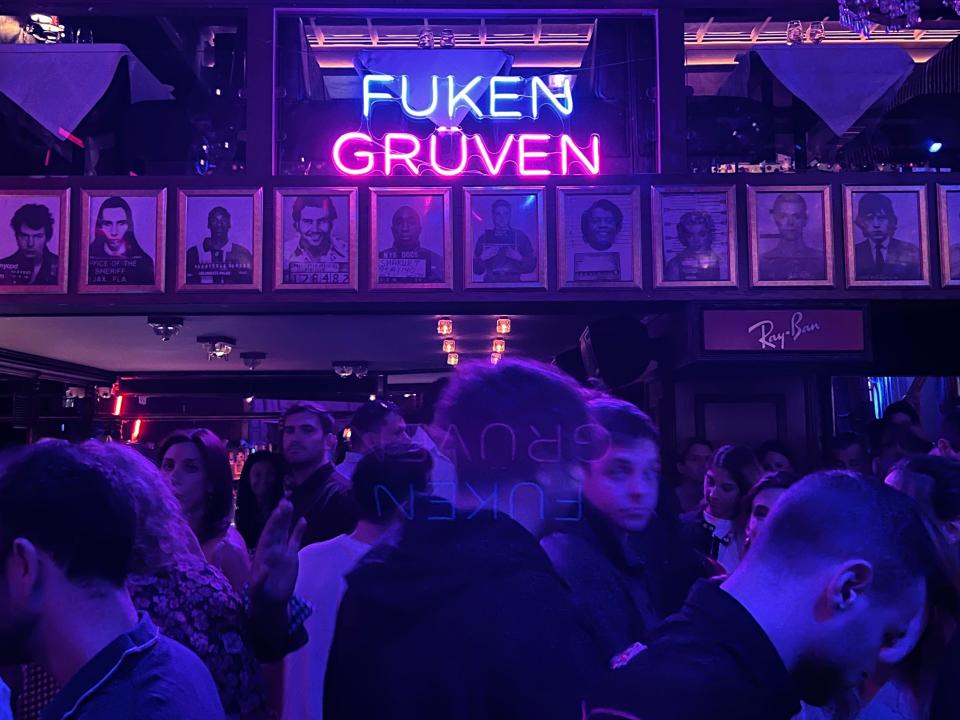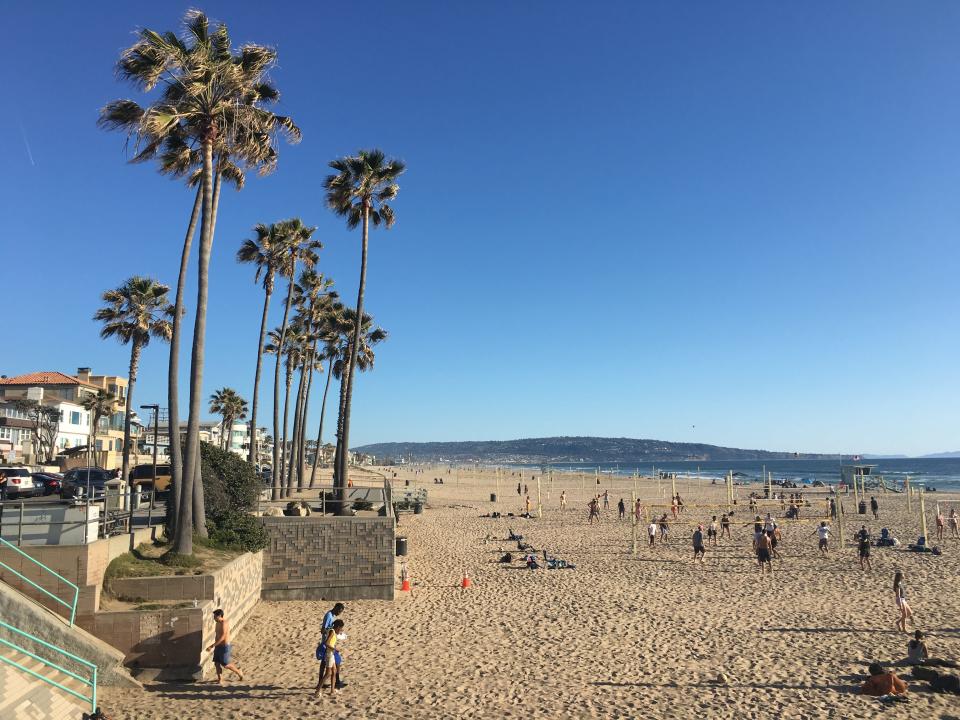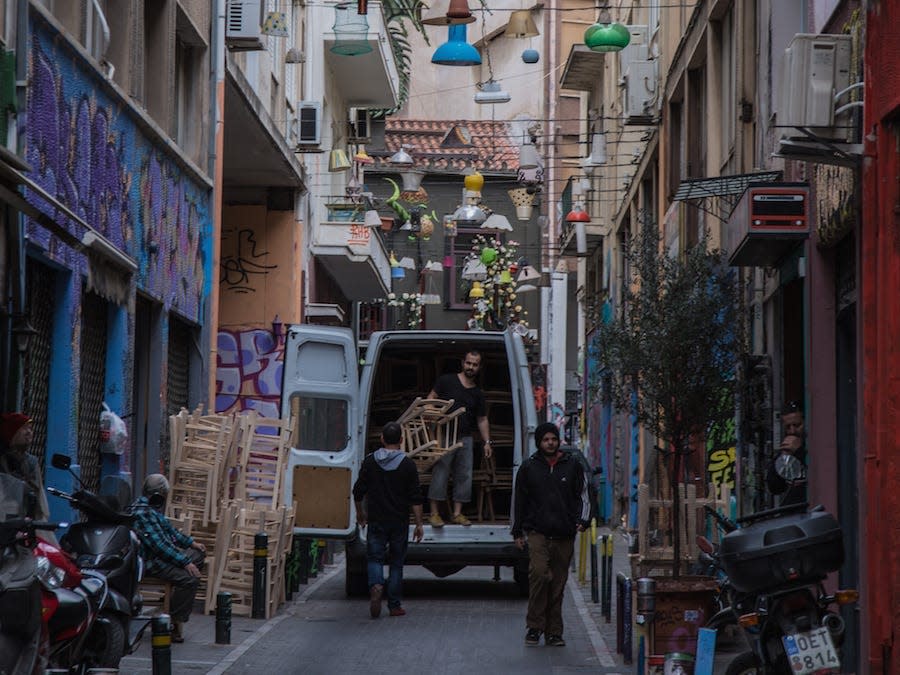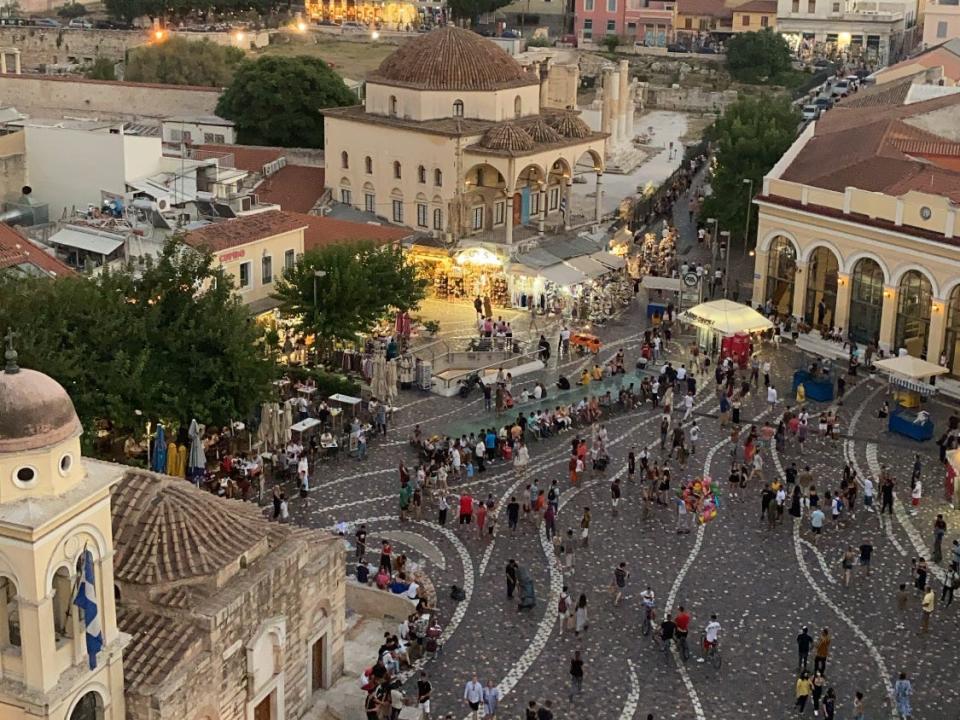I spend half the year in LA and the other 6 months in Greece. Here are 8 of the biggest differences I've noticed.

I split my year between Los Angeles and Athens, and the cities are quite different.
Beach culture and public recreational spaces tend to be more lax in Greece than in the US.
I hardly ever run into traffic in Athens, but it's normal to sit on the clogged freeway in LA.
I spent the first few years of my life in Greece and then moved to the US.
But just like the influx of travelers helping to set record-breaking tourism numbers on the islands, I couldn't stay away from my beautiful birth country for long.
I currently split my time between Los Angeles and Athens for work — six months in the US and the other half of the year in Greece.
Now that I've been going back and forth between the countries for a few years, I've noticed a lot of stark differences.
I find Greek people much blunter than Americans.

I know that Greek people can come across as rude, especially to tourists. But being overly polite or smiley with strangers isn't part of the nation's social culture.
I actually appreciate knowing where I stand with people when I'm in Greece. I get much more constructive criticism and real talk from friends.
On the other hand, people in the US tend to smile and offer some degree of friendliness and politeness — whether they're interacting with customer-service workers, strangers, or friends.
I can party all night (and into the morning) in Athens.

Angelenos already knew LA shuts down relatively early for a major city. Most places close by 2 a.m. largely due to the time regulations on serving alcohol.
In Athens, I can easily stay out until 4 a.m. And if I'm willing to head out to the club district or one of the many bouzoukias (clubs with live music), I can stretch the night out even longer.
Beach life is handled very differently.

Both Athens and LA have absolutely stunning beaches.
But Greeks tend to build cafés and bars very close to the shoreline, so there are always refreshments close by — even if I question the environmental effects of having infrastructure so close to the water.
In LA, if I go to the beach with friends, I pack coolers like I'm camping because we usually can't get any food or drink service on the sand.
It makes going to the beach in LA more of a full-day plan if you don't live super close.
LA has more regulations for recreation and public space.

In LA, it feels like everything involving recreation — including going to the beach — is regulated.
You usually can't have glass containers, alcohol, animals, or loud music in recreational areas. And if you stay too late, it might be considered loitering.
In Athens, I pass young people drinking beers in a city square, skateboarding around public parks, and hanging out until 2 or 3 a.m. That's pretty much impossible to do in LA without getting some sort of side-eye or written warning.
LA's streets are much wider.

Geographical differences aside, LA streets, businesses, and even parking spaces feel massive compared to Greek standards. I frequently park in Greece with barely an inch to spare between my bumper and my neighbor's.
Many of the bigger cars I see in LA wouldn't fit on some of Athens' central streets.
What Greek people consider bad traffic is amusing to me now.

Athens has a few central thoroughfares that can get pretty clogged during rush hour. But most of the time I drive on the city's highways, I don't have to slow down even once for traffic.
In LA, it's hard to find a time when the freeways aren't clogged — unless it's 1 a.m.
Athens has a lot more foot traffic.

Athens' city center is very walkable, as are many of its more suburban neighborhoods. It's not uncommon to come across pedestrian-only streets and central squares lined with lively bars, restaurants, shops, and cafés.
I love seeing more people out and about on the streets. Most of the sidewalks lining LA boulevards (when they exist at all) seem deserted because of the city's deep car culture.
Restaurant service works very differently.

Getting the check at restaurants in Greece can frustratingly take forever. Plus, restaurants frequently serve free dessert or fruit at the end of a meal, extending my time there.
Although service in the US is much faster and generally friendlier, it can also feel hurried toward the end of a meal. Servers will continuously remind me that they've left the bill on the table.
That said, I kind of understand the difference. US servers generally rely on tips (which requires more turnover), but Greek servers tend to care more about their hourly wage.
Read the original article on Business Insider


